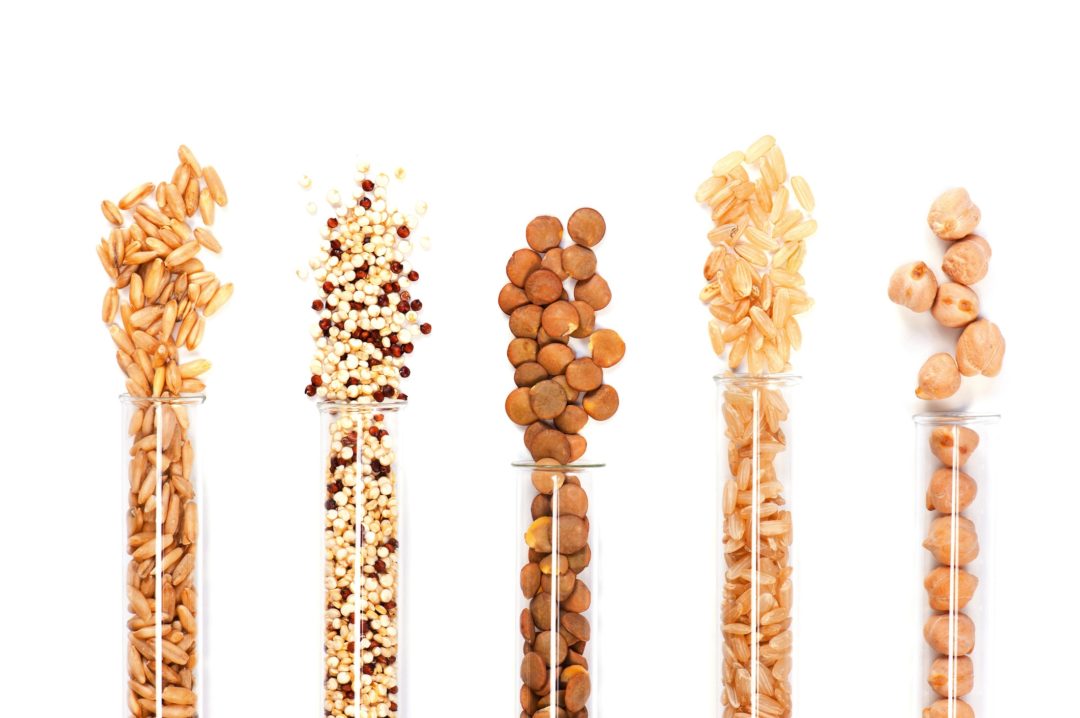The other day, a player I hadn’t seen in a while showed up at a tennis clinic I take every Saturday looking really good. She had clearly lost the weight I knew she had struggled with, she looked really healthy, and generally had a noticeably “upbeat” energy.
I told her how great she looked, and asked what she was doing.
“Oh,” she said, “I am eating the best diet ever. And I’m sticking to it perfectly. I’m telling everyone I know to switch to this diet because it’s the best thing ever!”
Naturally, I was curious about a diet that was the “best thing ever,” so I asked her to explain.
Apparently, my friend had just read a book called The Plant Paradox (about more in a moment). The gist of the book is that we need to avoid lectins, a compound found in plants that the author believes is responsible for a host of maladies including—but not limited to—the inability to lose weight.
So what the heck are lectins? And, most importantly, should we be concerned?
Well, maybe.
The truth about lectins
Lectins are substances contained in legumes and grains that originally evolved to fight off insect predators. But a portion of the lectin itself can act as a kind of metabolic super-glue that can bind with tissues in our body and create problems. (One of the founding principles of the Blood Type Diet of Dr. Peter D’Adamo is that when you eat foods containing lectins that are incompatible with your blood type, those lectins target an organ or bodily system and can begin to wreak havoc with the tissues in that area.) (1)
Lectins figure prominently in Paleo texts. Loren Cordain, Ph.D.—the Paleo guru and a highly respected researcher at the University of Colorado—published a paper in the British Journal of Nutrition (2) laying out the theory that dairy foods, legumes, grains, and yeast may be partly to blame for rheumatoid arthritis and other autoimmune diseases in genetically susceptible people, due in part to the lectin molecule.
According to Cordain, the lectins in food are known to increase intestinal permeability (also known as “leaky gut”). Lectins allow partially digested food proteins and remnants of gut bacteria to spill into the bloodstream. They make the intestines easier to penetrate, impairing the immune system’s ability to fight off food and bacterial fragments that leak into the bloodstream.
Fast forward about 20 years to 2017, when a book by a former cardiac surgeon named Steven Gundry, M.D., seemed to confirm Cordain’s worst nightmares about lectins. The book—The Plant Paradox—got a ton of attention for claiming that the plant-based diet everyone seemed to be recommending contained tons of what Cordain had referred to as “cellular Trojan horses.” Gundry maintained that lectins were the root cause of both weight gain and many of our chronic illnesses. His book lists more than a dozen disorders that he believes come from lectin activity in the body including diabetes, chronic fatigue, memory loss and heart disease. And his recommendations are far more restrictive than Cordain’s ever were. Gundry counsels that we reduce grains of all kinds (especially whole wheat), beans and legumes (especially soy), nuts, fruits, vegetables, dairy and eggs.
The good side of lectins
Meanwhile, back at the ranch, there are some studies that suggest that some lectins may have positive effects, like binding to cancer cell membranes which could conceivably inhibit tumor growth, or lead to cell death (3). One study discussed the clinical studies of plant lectins for their potential therapeutic effect in cancer treatment, and concluded, “these inspiring findings would open a new perspective for plant lectins as potential antineoplastic drugs from bench to clinic” (4).
So what do we do? To read The Plant Paradox—or even the original Cordain—you’d think lectins were something we should all be really concerned about. But then you read the cancer studies and think, Maybe it’s not so black and white. Remember, there are countless epidemiological studies that show that populations that eat lots of beans (as well as many of the foods Gundry warns against) have significantly lower risk for a host of diseases like diabetes, cardiovascular diseases, cancer and more. (Of course epidemiology—which observes large numbers of people over very long periods of time—tells us nothing about what happens to any one given individual who may be super-sensitive to something that has little effect on most other folks. So there’s that.)
Bottom Line: Do we need to be concerned about lectins in beans? Maybe.
Obviously, beans have huge health benefits if you’re not one of the people who responds badly to them. “From my experience treating thousands of patients over the years, only about 10 percent of them react to lectins,” says Steven Masley, M.D., director of the Optimal Health Center in Florida and the co-author of Smart Fat (5).
But if you’re someone who has unexplained symptoms possibly related to food or gut health, it might be worthwhile to avoid beans till you figure out exactly what’s going on.
_____________________________________________________
(This has been adapted from my forthcoming book, Living Low Carb 4th edition, Sterling Press 2020, used with permission)
REFERENCES
- http://www.dadamo.com/txt/index.pl?1007
- https://www.ncbi.nlm.nih.gov/pubmed/10884708
- https://www.ncbi.nlm.nih.gov/pubmed/16183566
- https://www.sciencedirect.com/science/article/pii/S0304383509003450
- https://amazingwellnessmag.com/diet-nutrition/paleo-diet-myths-busted










